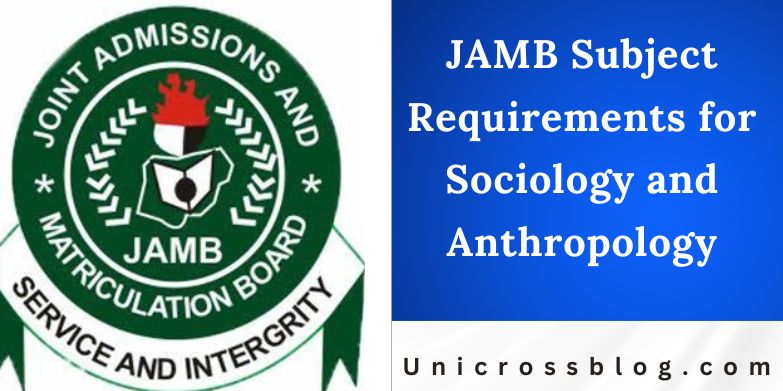Sociology and Anthropology is an engaging undergraduate program offered in many Nigerian universities, typically housed within the Faculty of Arts and Humanities or the Faculty of Social and Management Sciences. This interdisciplinary course explores the complexities of human societies, cultural practices, social behaviors, and group interactions within local and global contexts. Sociology examines contemporary issues such as inequality, urbanization, family dynamics, and social change, while Anthropology focuses on cultural diversity, human evolution, kinship systems, and ethnographic studies of communities. Together, these fields equip students with analytical skills to address real-world challenges like poverty, migration, gender roles, and globalization.
Pursuing Sociology and Anthropology opens up diverse career opportunities, including roles in social research, policy analysis, human resources, community development, non-governmental organizations (NGOs), education, and international development agencies. Graduates can find employment in government ministries, media organizations, consulting firms, or pursue advanced studies in areas like criminology, public health, or international relations. The program fosters critical thinking, research proficiency, and cultural sensitivity, making it ideal for those passionate about understanding human societies and driving societal progress.
To gain admission into this program through the Unified Tertiary Matriculation Examination (UTME), candidates must meet specific Joint Admissions and Matriculation Board (JAMB) requirements. These include O’level qualifications, a minimum UTME score (typically 180 or higher, depending on the institution), and the correct subject combination in the UTME exam. Selecting the appropriate subjects is critical, as incorrect choices can lead to disqualification during screening.
The requirements outlined here are based on the official JAMB brochure and are generally consistent across universities such as the University of Nigeria Nsukka (UNN), Obafemi Awolowo University (OAU), University of Benin (UNIBEN), Ebonyi State University (EBSU), and University of Uyo (UNIUYO). However, slight variations may exist, so candidates should confirm with their chosen institution’s admission portal.

JAMB Subject Requirements
UTME Subject Combination
In the UTME, English Language is mandatory for all candidates, as it assesses communication skills essential for social sciences. The other three subjects should align with the interdisciplinary nature of Sociology and Anthropology, focusing on social sciences and arts to build foundational knowledge in human behavior and societal structures.
The approved JAMB subject combination for Sociology and Anthropology is:
- English Language (compulsory)
- Economics
- Government
- Any one of the following: History, Geography, Literature in English, French, Islamic Religious Knowledge (IRK), or Hausa
This combination ensures a balance of economic principles (for understanding resource allocation in societies), governance (for analyzing political and institutional frameworks), and a flexible option in history or culture (for anthropological depth). For example, selecting Government and History emphasizes societal evolution, while choosing Literature in English enhances skills in cultural and narrative analysis. Candidates should choose the fourth subject based on their strengths at the secondary school level to maximize their UTME performance. The UTME exam consists of 60 questions for English and 40 questions each for the other three subjects, totaling 180 questions to be completed in 2 hours.
O’Level Requirements
For UTME admission, candidates must have at least five credit passes in Senior Secondary Certificate Examinations (SSCE) such as WAEC, NECO, or NABTEB, obtained in no more than two sittings. The required subjects are:
- English Language
- Mathematics
- Economics
- Any two subjects from Arts or Social Sciences, such as History, Government, Geography, Civic Education, or Literature in English
These credits demonstrate proficiency in core academic areas. Mathematics supports quantitative analysis in sociological research, while Economics introduces concepts of resource distribution in societies. Some institutions, like OAU, may prefer at least one Arts subject alongside Social Science subjects to ensure a well-rounded academic profile.
Direct Entry Requirements
Candidates seeking Direct Entry (DE) admission with qualifications such as A’levels, National Diploma (ND), Higher National Diploma (HND), or National Certificate of Education (NCE) must meet the following requirements in addition to the O’level credits:
- Two A’level passes in relevant subjects such as Government, Sociology, Economics, Geography, History, Civics, Hausa, or Islamic Studies. A minimum of nine points in IJMB is often required.
- A recognized first degree from a Nigerian or foreign university in a related field.
- ND/HND upper credit or NCE merit in programs such as Public Administration, Mass Communication, or Social Work.
- Specific waivers: UNN accepts two A’level passes in Social Science or Arts subjects; UNIBEN requires two A’level passes, including one Social Science subject, plus ND/HND lower credit; EBSU accepts HND/NCE/ND with merit/upper credit; OAU requires A’level passes in three subjects from Geography, Government, History, Economics, Sociology, or Religious Studies.
Direct Entry candidates must purchase the JAMB DE form and may need to pass an institution-specific screening, which could include written tests or interviews.
List of Subject Combinations
The core UTME combination requires English, Economics, and Government, with flexibility in the fourth subject. Below are recommended subject combinations for Sociology and Anthropology, all adhering to JAMB guidelines:
- English Language, Economics, Government, History
- English Language, Economics, Government, Geography
- English Language, Economics, Government, Literature in English
- English Language, Economics, Government, French
- English Language, Economics, Government, Islamic Religious Knowledge (IRK)
- English Language, Economics, Government, Hausa
These combinations cater to varied interests: History or Geography supports spatial and temporal analysis, Literature in English enhances cultural interpretation, French aids global anthropological studies, and IRK or Hausa is relevant for regional cultural studies. Candidates should avoid unrelated subjects like Physics or Biology, as they do not align with the program’s focus.
Additional Tips for Admission Success
Beyond meeting subject requirements, candidates should develop a balanced study routine and practice past JAMB questions to familiarize themselves with the exam format. Many universities, such as UNN or OAU, conduct post-UTME screenings that may include written tests or interviews focusing on current social issues. Achieving a cumulative score above the institutional cut-off (e.g., 200 or higher for competitive schools) by combining UTME and post-UTME results is essential.
The Sociology and Anthropology program typically lasts four years for UTME entrants and three years for Direct Entry students. Coursework includes lectures, fieldwork, and a final-year research project. High-performing students may access scholarships from organizations like the Tertiary Education Trust Fund (TETFund).
In conclusion, adhering to the JAMB subject requirements is a critical step toward pursuing Sociology and Anthropology. With dedication and proper preparation, aspiring students can embark on a rewarding academic journey that contributes to understanding and improving human societies.
READ ALSO: Updated Subject Combination for Psychology in Nigeria
FAQs
What is the minimum JAMB score required for Sociology and Anthropology?
The general JAMB cut-off is 180, but competitive universities like OAU or UNN may require 200 or higher. Check the specific institution’s guidelines annually.
Can I use two sittings for O’level results?
Yes, up to two sittings are allowed for WAEC/NECO/NABTEB, provided all credits include English, Mathematics, and Economics.
Is Literature in English compulsory in UTME?
No, it is an optional fourth subject. Economics and Government are mandatory alongside English.
What if I chose the wrong subject combination during JAMB registration?
You can apply for a subject change on the JAMB portal before the exam, though it incurs a fee. Act early to avoid complications.
Are there differences in requirements between universities?
Core requirements are similar, but OAU emphasizes A’level passes in three social subjects for Direct Entry, while UNIBEN accepts ND in related fields. Consult the JAMB brochure or university website for specifics.
Can I study this course with a science background?
Yes, provided your O’level includes the required credits and your UTME subjects align. Science students may need additional reading to bridge gaps in social sciences.
What careers await graduates?
Graduates can pursue roles like social worker, policy advisor, researcher, HR specialist, or NGO coordinator. Further studies can lead to academia or specialized roles in development.







